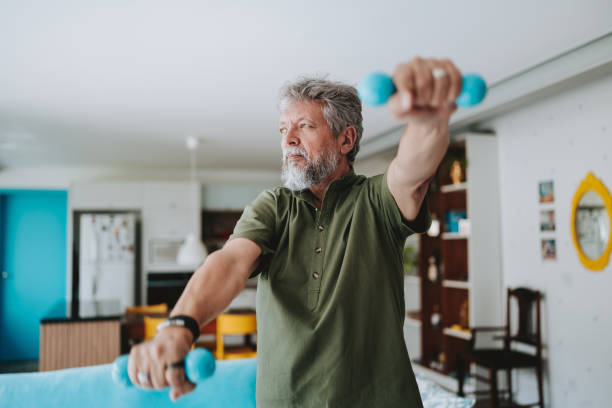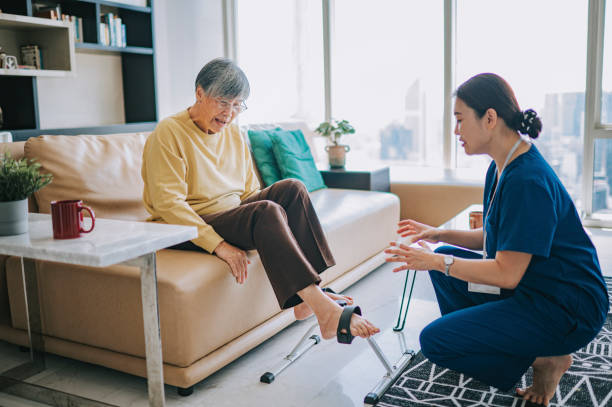Physical therapy is often associated with regaining physical strength, mobility, and functionality after an injury or surgery. However, the emotional benefits of physical therapy, particularly when conducted at home, are often overlooked. Building confidence is one of home-based physical therapy’s most significant emotional gains. It not only helps individuals reclaim their physical abilities but also fosters a renewed sense of self-worth, independence, and resilience.
Contents
The Intersection of Physical and Emotional Health
Physical and emotional health are deeply intertwined. An injury or physical limitation can significantly impact an individual’s emotional well-being. Feelings of helplessness, frustration, and even depression are common. Conversely, improving physical health often leads to positive emotional changes.
Physical therapy at home offers a unique opportunity to address both aspects simultaneously. In a familiar and comfortable environment, individuals can focus on their recovery without the added stress of commuting to a clinic or feeling self-conscious in a public space. This creates a conducive atmosphere for both physical and emotional healing.
Reclaiming Independence
One of the most profound emotional benefits of physical therapy at home is the restoration of independence. Injuries or surgeries often leave individuals feeling reliant on others for basic tasks. This dependency can erode self-esteem over time.
Home-based physical therapy empowers individuals to take control of their recovery journey. By practicing exercises and activities tailored to their specific needs, they gradually regain the ability to perform daily tasks independently. Each small victory—such as walking without assistance, climbing stairs, or cooking a meal—boosts confidence and reinforces the belief that they can overcome challenges.
Overcoming Fear of Movement
After an injury, it’s natural to develop a fear of re-injury or pain, leading to avoidance of certain movements or activities. This fear can become a psychological barrier, delaying recovery and diminishing quality of life.
Home-based physical therapy helps individuals confront these fears in a controlled and supportive manner. Guided by a licensed physical therapist, they learn proper techniques and gradually reintroduce movements in a safe environment. Over time, the fear diminishes, replaced by confidence in their ability to move freely and safely. This psychological shift is a crucial step toward full recovery and improved mental well-being.
A Boost in Self-Confidence
Physical therapy at home provides personalized care, focusing on the individual’s unique challenges and progress. This one-on-one attention fosters a sense of importance and value.
As individuals see tangible improvements—whether it’s reduced pain, increased strength, or enhanced mobility—they experience a boost in self-confidence. They begin to trust their bodies again and feel proud of their progress. These emotional milestones are just as significant as the physical ones, contributing to an overall sense of achievement and well-being.
Creating a Sense of Routine and Purpose

Recovery can be a long and challenging process, and it’s easy to feel lost or unmotivated during this time. Physical therapy at home introduces structure and purpose into daily life. Scheduled sessions and prescribed exercises create a routine, giving individuals something to focus on and look forward to.
This sense of purpose can be especially beneficial for those recovering from long-term injuries or surgeries, as it helps combat feelings of stagnation and hopelessness. Each session reminds individuals that they are actively working toward their goals, fostering a sense of accomplishment and determination.
Strengthening Relationships
Home-based physical therapy often involves family members or caregivers who provide support and encouragement throughout the recovery process. This collaboration can strengthen relationships, fostering a sense of teamwork and mutual understanding.
Family members gain a deeper appreciation for the individual’s efforts and challenges, while the individual feels supported and valued. This emotional connection can be a powerful motivator, reinforcing the individual’s commitment to their recovery journey.
Resilience and Emotional Growth
The process of recovering from an injury or physical limitation is inherently challenging. It requires patience, persistence, and a willingness to endure discomfort. Physical therapy nurtures these qualities, which contribute to emotional growth and resilience.
As individuals overcome setbacks and achieve milestones, they develop a stronger sense of self-efficacy—the belief in their ability to influence events and outcomes in their lives. This newfound resilience extends beyond the realm of physical therapy, positively impacting other areas of their lives, such as work, relationships, and personal goals.
Practical Tips for Maximizing Emotional Gains
To fully experience the emotional benefits of physical therapy at home, consider the following tips:
- Set Realistic Goals: Work with your physical therapist to set achievable milestones. Celebrate each accomplishment, no matter how small.
- Stay Consistent: Consistency is key to progress. Stick to your prescribed routine and track your improvements over time.
- Seek Support: Don’t hesitate to involve family members or friends in your recovery journey. Their encouragement can make a significant difference.
- Practice Patience: Recovery takes time. Be patient with yourself and focus on the progress you’re making rather than the time it takes.
- Maintain a Positive Mindset: Focus on the aspects of recovery you can control and stay optimistic about your journey.
Wrapping Up
Physical therapy at home is not just about regaining physical functionality; it’s a holistic journey that also addresses emotional well-being. Home-based physical therapy helps individuals rebuild their physical and emotional lives by fostering independence, overcoming fears, and boosting self-confidence.
Ultimately, the recovery journey is about more than just healing the body. It’s about reclaiming one’s sense of self, rediscovering inner strength, and emerging more confident and resilient than before. Through personalized care, consistent effort, and a supportive environment, physical therapy at home unlocks the emotional gains that are essential for long-term well-being.

